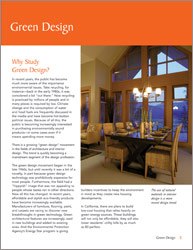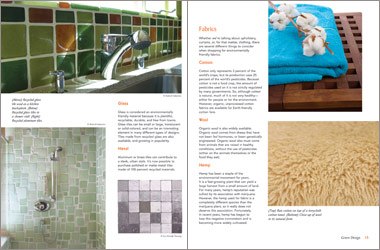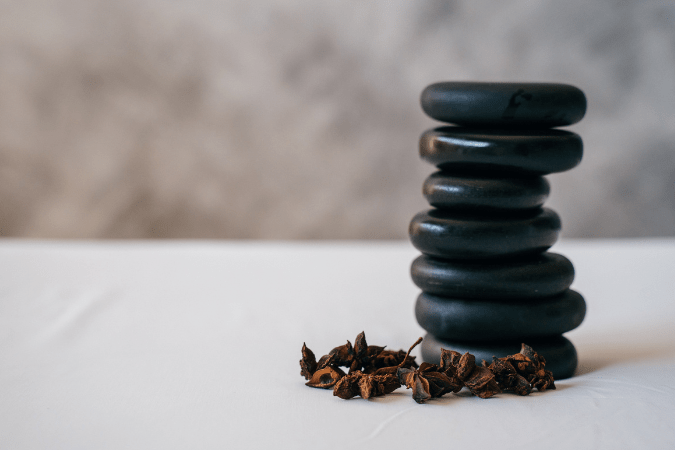
Here's an excerpt from the new NYIAD Complete Course in Interior Design Lesson on Green Design.
Glass:
Glass is considered an environmentally friendly material because it is plentiful, recyclable, durable, and free from toxins. Glass tiles can be small or large, translucent or solid-colored, and can be an interesting element in many different types of design. Tiles made from recycled glass are also available, and growing in popularity.
Metal:
Aluminum or brass tiles can contribute to a sleek, urban style. It is now possible to purchase polished or matte metal tiles made of 100-percent recycled materials.
Cotton:
Cotton only represents 3 percent of the world's crops, but its production uses 25 percent of the world's pesticides. Because cotton is not a food crop, the amount of pesticides used on it is not strictly regulated by many governments. So, although cotton is natural, much of it is not very healthy — either for people or for the environment. However, organic, unprocessed cotton fabrics are available for Earth-friendly cotton fans.
Wool:
Organic wool is also widely available. Organic wool comes from sheep that have not been fed hormones, or been genetically engineered. Organic wool also must come from animals that are raised in healthy conditions, without the use of pesticides (either on the animals themselves or the food they eat).

Hemp:
Hemp has been a staple of the environmental movement for years. It's a fast growing plant that can yield a large harvest from a small amount of land. For many years, hemp's reputation was sullied by its association with marijuana. However, the hemp used for fabric is a completely different species than the marijuana plant, so it really does not deserve this association. Fortunately, in recent years, hemp has begun to lose this negative connotation and is becoming more widely cultivated.







